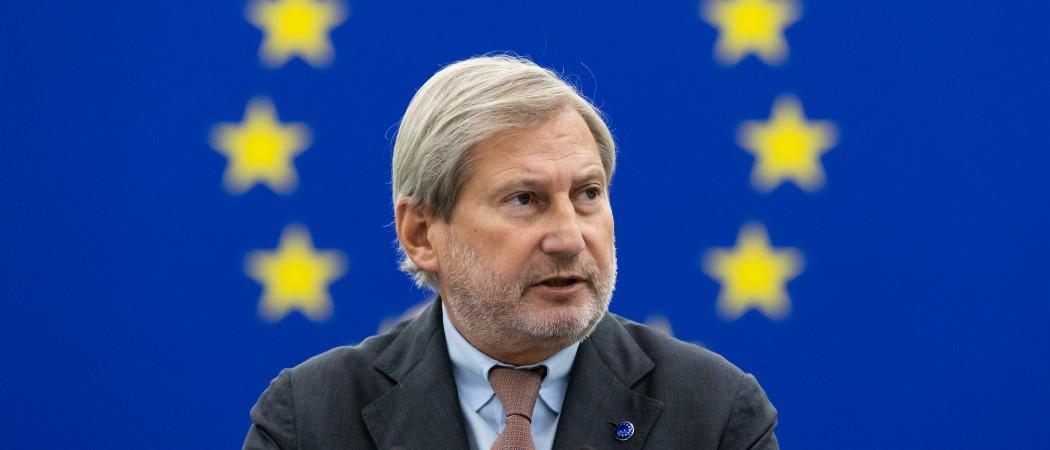Additional ‘flexibility’ is needed in the multiannual budget to allow the EU to make targeted investments in new energy and defence technologies. There is a suggestion funding could be diverted from agriculture and cohesion and towards such ‘strategic autonomy’ projects

Johannes Hahn, European Commissioner for Budget and Administration. Photo: European Union
The European Commission is preparing for an “ambitious review” of its multiannual budget to adapt it to the growing number of challenges the bloc is facing, from inflation to defence, EU budget commissioner Johannes Hahn told delegates at a conference on Monday in Brussels.
As things stand, the long-term EU budget allocates about a fifth of available resources to projects relevant to the bloc’s ‘strategic autonomy’, the policy buzzword in use over the past few years to define technology areas where the EU is over-reliant on foreign imports. These include energy, semiconductors and raw materials.
“Scaling up key green technologies will make our energy cheaper, cleaner and save our budgets,” said Hahn.
The EU also has for the first time a fund for defence R&D with a budget of nearly €8 billion, which is planned to expand in the future. “This is only the beginning,” Hahn said.
However, the ongoing war in Ukraine has brought the EU to the cusp of an energy and military crisis, forcing the bloc to think of ways to speed up the development of green energy and defence technologies. “The [EU] budget is currently under heavy pressure, no doubt,” said Hahn.
Hahn said the Commission will present a revised budget by mid-2023. He floated the idea of paring back budgets for the EU’s agriculture and cohesion policies to make room for investments in areas that would secure the bloc’s strategic autonomy. “I would say we need some modifications in the future, maybe even stronger than it was in the past in terms of the shares within the budget,” he said.
Commission president Ursula von der Leyen said the EU could do more in the area of renewable energy and defence, but the current EU budget is not designed to deal with so many overlapping crises. In addition, rising inflation is cutting the EU’s purchasing power by 10%.
“From the fight against climate change to common defence projects, there are many good reasons for doing more together as a union,” said von der Leyen. “However, resources and flexibilities are extremely limited.”
Parliament pressure
Ahead of next year’s proposal for a reshuffle of the budget as whole, the European Parliament is working to ensure a bigger budget for research in 2023. The budgets committee adopted a draft resolution on Monday calling once more for a €311 million top-up to Horizon Europe.
MEPs also agree that the EU’s current multiannual budget, which runs until 2027, is not designed to address multiple crises at the same time. Parliament’s budgets committee says “a substantial revision of the [multiannual budget]” is urgently needed.
A plenary vote on the 2023 envelope is expected next week, which will kick off political talks with member states that should conclude in time for the budget to be approved before the end of December.
Monika Hohlmeier, the chair of Parliament’s budgetary control committee lambasted member states for chipping at the EU budget during the 2023 negotiations. “Member states are cutting the most from foreign policy, then innovation and research,” she said.
Hohlmeier said the EU budget needs more flexibility to adapt to unforeseen challenges. Almost the entire EU budget is pre allocated over seven years to certain programmes, including research and innovation. That means the Commission and Parliament are left with limited room for shuffling money as priorities change.





 A unique international forum for public research organisations and companies to connect their external engagement with strategic interests around their R&D system.
A unique international forum for public research organisations and companies to connect their external engagement with strategic interests around their R&D system.